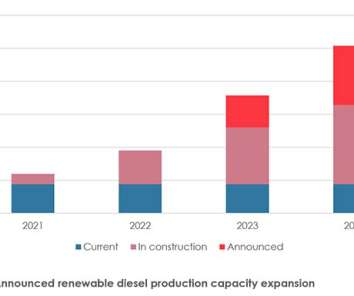Lux Research projects methanol-to-gasoline most competitive route for liquid fuels from natural gas or waste
Green Car Congress
JULY 26, 2013
The price disparity between crude oil and other resources, coupled with the emergence of cheap and abundant shale gas, especially in the United States, is opening up opportunities to produce cheaper gasoline, according to a new report from Lux Research. Waste biomass is a ubiquitous alternative. times the current production.





































Let's personalize your content